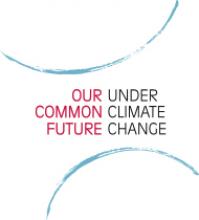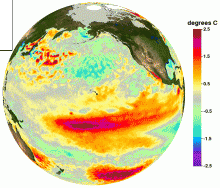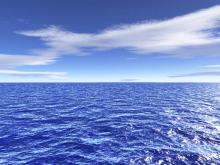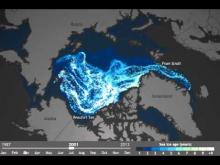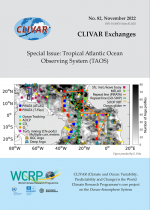Call for early career scientists to attend the 4th CLIVAR ENSO workshop in Paris, July
Submitted by Nico on Thu, 2015-03-12 01:47Our Common Future Under Climate Change
Submitted by Anna Pirani on Thu, 2015-03-05 09:10The International Scientific Conference “Our Common Future under Climate Change” will take place at UNESCO (Paris) in July 2015.
GCOS Science Conference
Submitted by Nico on Thu, 2015-03-05 06:59Global and Regional Sea Level Variability and Change
Submitted by Anna Pirani on Tue, 2015-03-03 09:24The workshop aims at evaluating the current state-of-knowledge of the sea level science, providing a forum for the discussion and the exchange of ideas on key sea level issues, and fostering collaboration across the wide range of disciplines involved in sea level research.
Call for Abstracts - "The Earth's energy imbalance and exchanges
Submitted by Nico on Fri, 2015-02-20 09:05Please consider contributing to the session on “The Earth’s energy imbalance and exchanges at the atmosphere-ocean interface: From fundamental research to societal concern,” part of the Our Common Future under Climate Change conference being held in Paris, France from 7-10 July 2015. A summary is below. The deadline for submissions is 2 March 2015; please note that you will need to submit your abstract under the parallel session theme of “Atmosphere-Ocean Interface” in order to relate to the session.
Institutional coordination of global ocean observations in Global Ocean Summit
Submitted by Lei Han on Fri, 2015-02-13 06:39A sustainable global ocean observation system requires timely implementation of the framework for ocean observing. The Qingdao Global Ocean Summit held on 25-26, October, 2014 highlighted the need for a more coherent institutional response to maintain an integrated ocean-observing system. A commentary on this event written by some CLIVAR participants was published in recent issue of the Nature Climate Change (Cai et al., 2015).
ICTP - CLIVAR School on Ocean Climate Modelling: Physical and Biogeochemical Dynamics of Semi- Enclosed Seas
Submitted by Anna Pirani on Mon, 2015-02-09 08:10The School will be organized in daily morning sessions with key lectures divided in two main streams (Part A: Fundamentals and Part B: Applications), and daily afternoon sessions devoted to practical training (Part C: Hands-on sessions). Practical sessions will be the backbone of the school, with hands-on training in the use of ocean and ecological models. The students will be guided through the necessary steps for setting up a simulation, from generating the input fields to choosing the appropriate physical settings, to finally analyzing and postprocessing the data.
VECTORS - Understanding what the seas give us
Submitted by LinaKang on Fri, 2015-02-06 03:15Old ice in Arctic vanishingly rare
Submitted by LinaKang on Fri, 2015-02-06 03:01Each winter, sea ice expands to fill nearly the entire Arctic Ocean basin, reaching its maximum extent in March. Each summer, the ice pack shrinks, reaching its smallest extent in September. The ice that survives at least one summer melt season tends to be thicker and more likely to survive future summers. Since the 1980s, the amount of this perennial ice (sometimes called multiyear) has declined.





